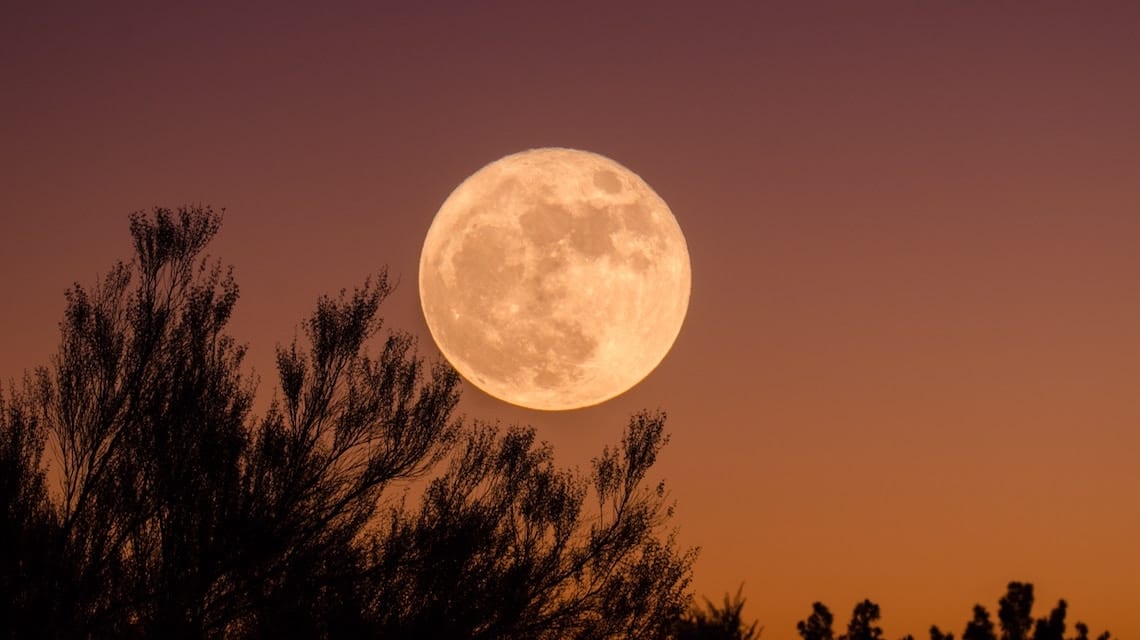Why Did the Prophet Fast on the White Days of the Month?
Shaykh Jamir Meah is asked about the significance, virtues, and blessings, of fasting on the white days of each month.
Question:
Assalam alaykum wa rahmat Allah wa barakatuh.
I was wondering why the Prophet, blessings and peace be upon him, fasted on the white days of each month? Was there a specific logic behind these particular days? I’ve heard a lot about how the moon affects our moods and I was wondering if this had anything to do with why these days were chosen?
Answer:
Wa alaykum assalam wa rahmat Allah wa barakatuh.
I hope you’re well insha Allah.
The white days of the month refer to 13th, 14th and 15th of each lunar month, when the moon is at its fullest and most luminous.
Fasting on these days (al ayam al beed) is an established sunna, mentioned in various ahadith such as, “If you fast three days of the month, then fast the 13th, 14th and 15th.” (Tirmidhi), and the words of Ibn Abbas, “The Messenger of Allah, blessings and peace be upon him, did not fail to fast the white days either when at home or on a journey.” (Nasa’i)
Reward of a Lifetime
The Prophet, blessings and peace be upon him, informed us that fasting three days a month yields the rewards of fasting the whole month, “because for every good deed you will have [the reward of] ten like it, so that will be like fasting for a lifetime.” (Bukhari, Muslim) Each day earns 10 rewards, thus htree days equals thirty days reward. Thirty days being the maximum days of a lunar month. If one does this every month for twelve months, then they are rewarded for a whole year, and if they do this every year, then it is as if they fasted every year of their life.
While this reward can be achieved by fasting any three days of the month, the Prophet, blessing and peace be upon him, specifically mentioned this rewards alongside the sunna of fasting on the white days, as if indicating to the optimal combination of the general three days with the three white days, “Fasting three days of each month is fasting for a lifetime, and the shining days of whiteness, the 13th, 14th and 15th.” (Nasa’i)
The Lunar Effect
The word lunacy originates from the Latin “lunaticus,” meaning “of the moon,” and has long been associated with mental health. Aristotle is said to have held that the brain was the “moistest” organ in the body and thereby most susceptible to the influences of the moon, which triggers the tides.
Though scientific evidence is inconclusive, the gravitational hypothesis holds that the moon’s gravitational pull has the power to affect animal feelings and behavior, as animal physiology (particularly bodily fluids) are subject to seasonal, lunar, and circadian rhythms. Moonlight itself may have effects on the human physiology.
Some studies have shown that the lunar cycle has a particular impact on human reproduction, specifically fertility, menstruation, and birth rate. During the full moon, it is said that the lunar effect decreases sleep quality and diminishes melatonin levels. Animal studies reveal that the lunar cycle may affect hormonal changes.
The Lunar Effect and the White Days
Fasting in general certainly has many positive health benefits, among them harmonizing hormonal imbalances and lowering blood pressure and sugar levels. Given that the lunar effect theory maintains that bodily fluids and secretions are subject to increase and decrease during the full moon phase, fasting during these days makes sense.
However, there does not seem to be any textual reference to the wisdom or reasons behind fasting on the white days, therefore, it is not possible to say with any certainty whether the lunar effect is part of the wisdom or consideration behind the sunna of fasting on these days.
All good wishes and warmest salams,
Jamir
Checked and approved by Shaykh Faraz Rabbani.
